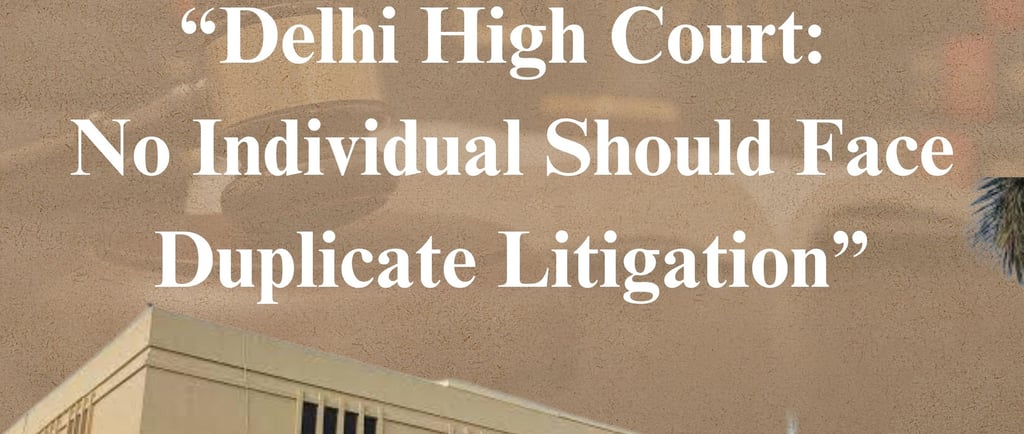“Delhi High Court: No Individual Should Face Duplicate Litigation”
The Delhi High Court recently reiterated that re-adjudicating the same issue is against public policy, emphasizing that courts must ensure a litigant is not subjected to repeated litigation on identical issues. This observation was made by Justice Subramonium Prasad in a judgment addressing a petition under Section 11 of the Arbitration and Conciliation Act, 1996, filed by Jaiprakash Associates Limited against NHPC Limited.
1/21/20252 min read


The case arose from disputes related to delays in constructing the Dulhasti Hydro Electric Project on the Chenab River in Jammu and Kashmir. Initially awarded to another contractor, the project was eventually taken over by Jaiprakash Associates in 1997 under a contract with NHPC. Although scheduled for completion within 33 months, the project was delayed significantly, concluding only in 2007. Subsequently, Jaiprakash Associates sought ₹7,360.56 crores as compensation for extended site occupation, but NHPC rejected the claim.
The dispute went to arbitration, where the tribunal acknowledged the lack of evidence supporting Jaiprakash’s claims but still awarded ₹760 crores based on “good conscience and reasonable estimation.” The award was later set aside by the High Court in 2023, citing contradictions in the tribunal’s reasoning. Jaiprakash Associates then petitioned for the appointment of a new arbitral tribunal, arguing that the prior arbitration failed to resolve the core issues. They invoked provisions under the Arbitration and Conciliation Act, which allow fresh arbitration when an award is set aside.
NHPC opposed the plea, asserting that the claims had already been adjudicated and the petition was mala fide. It argued that revisiting the issue would squander public and private resources, undermining the arbitration process’s purpose of resolving only legally viable disputes. The High Court agreed, dismissing the petition and stressing the principle of finality in dispute resolution. It referred to the Supreme Court’s judgment in SBI General Insurance Co. Ltd. v. Krish Spinning, stating that entertaining such claims would be an improper use of arbitration.
The Court underscored the importance of preventing wastage of resources and ensuring that arbitration is not used to revive “dead claims.” Applying the “eye of the needle” test, it concluded that the claims were clearly non-arbitrable. The referral court’s duty, the Court emphasized, is to prevent parties from being compelled to arbitrate matters that are demonstrably non-arbitrable. Consequently, the petition under Section 11 for the appointment of an arbitrator was dismissed.
Jaiprakash Associates Limited was represented by Senior Advocate Lovkesh Sawhney and Advocate Rohit Kumar. NHPC Limited was represented by a team of lawyers from Cyril Amarchand Mangaldas, including Advocates Gauhar Mirza, Hiral Gupta, Sukanya Singh, Rohit Rahar, and Devarshi Mohan.
